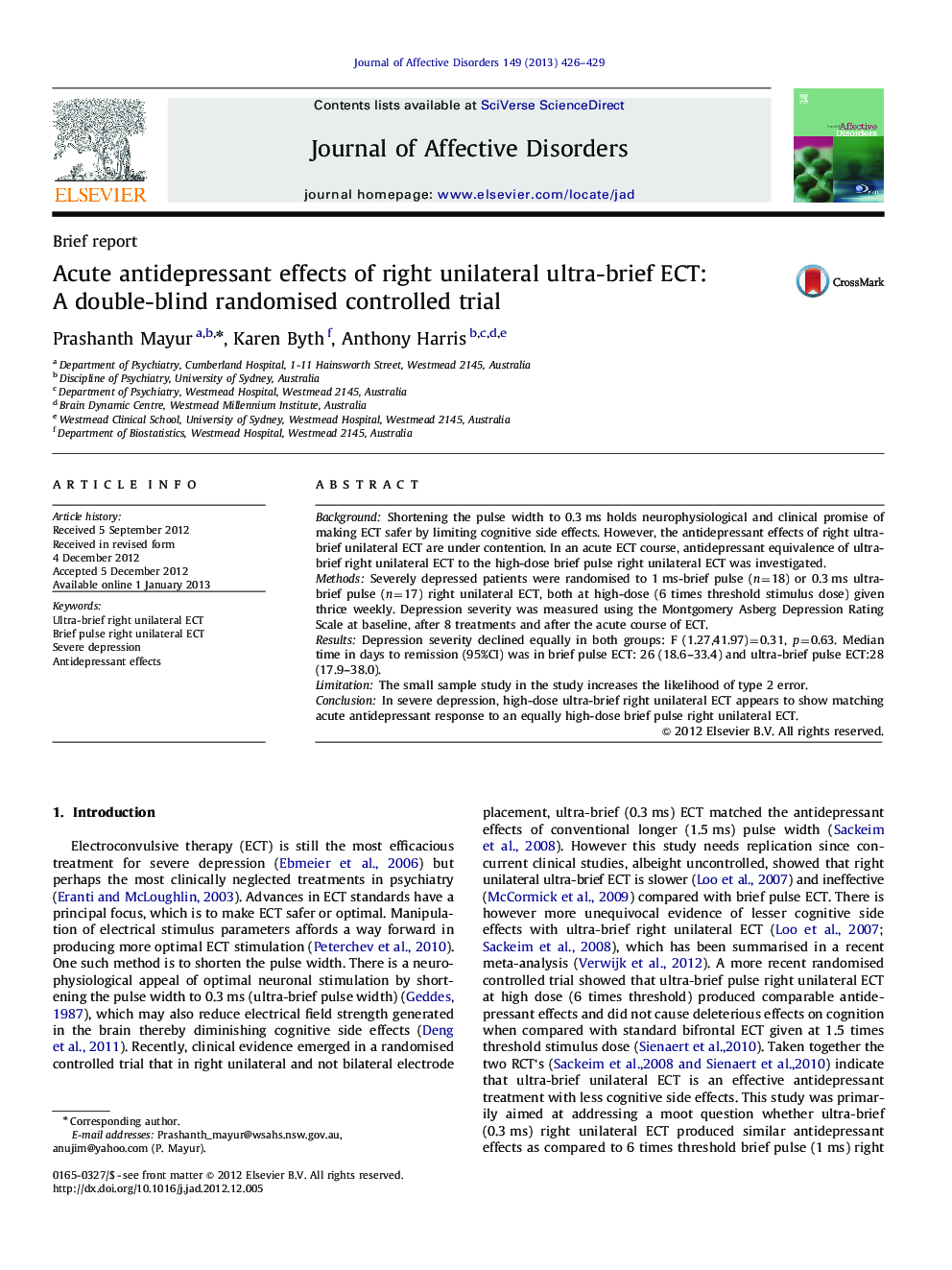| Article ID | Journal | Published Year | Pages | File Type |
|---|---|---|---|---|
| 6234711 | Journal of Affective Disorders | 2013 | 4 Pages |
BackgroundShortening the pulse width to 0.3Â ms holds neurophysiological and clinical promise of making ECT safer by limiting cognitive side effects. However, the antidepressant effects of right ultra-brief unilateral ECT are under contention. In an acute ECT course, antidepressant equivalence of ultra-brief right unilateral ECT to the high-dose brief pulse right unilateral ECT was investigated.MethodsSeverely depressed patients were randomised to 1Â ms-brief pulse (n=18) or 0.3Â ms ultra-brief pulse (n=17) right unilateral ECT, both at high-dose (6 times threshold stimulus dose) given thrice weekly. Depression severity was measured using the Montgomery Asberg Depression Rating Scale at baseline, after 8 treatments and after the acute course of ECT.ResultsDepression severity declined equally in both groups: F (1.27,41.97)=0.31, p=0.63. Median time in days to remission (95%CI) was in brief pulse ECT: 26 (18.6-33.4) and ultra-brief pulse ECT:28 (17.9-38.0).LimitationThe small sample study in the study increases the likelihood of type 2 error.ConclusionIn severe depression, high-dose ultra-brief right unilateral ECT appears to show matching acute antidepressant response to an equally high-dose brief pulse right unilateral ECT.
